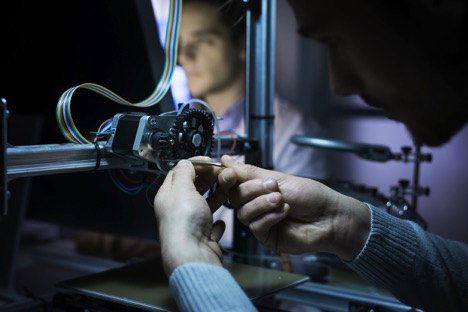Over the past decade or so, the IT and computer engineering fields were more attractive to students, particularly due to the large demand for software developers.
However, things have changed a lot since then.
Due to ever-growing advancements in technology, there has been an increased demand for non-IT courses like electrical engineering, particularly due to the ample amount of career opportunities.
The working environment of a computer engineer will always involve a laptop or computer in order to design, develop and test the software applications they are building. However, this isn’t as applicable for electrical engineers as they need not stick to only computers but work in differing environments such as power stations, laboratories, or factories depending on their specialisation.
To choose the right speciality in Electrical Engineering, students should gain good knowledge about the various courses offered by leading universities. Before deciding on their speciality, however, students should ask themselves whether they have the right skills to excel in their selected discipline.
If someone has enrolled in engineering solely for the sake of obtaining a degree, then they need not worry about the field of interest. However, if a student has chosen electrical engineering out of passion, then it would be prudent to identify their interests and strengths before settling on a speciality to pursue.
Example Fields Within Electrical Engineering
Below, you will find an outline of the most demanding fields of interest in electrical engineering and the basic skills required for them.
Nanotechnology
This field can be considered a fusion of science and technology, as it is not only used in developing the tiny chips used in computer circuitry (nanoelectronics) but also for creating new nanotools, say to study biological processes (nanobiotechnology). Nanotechnology is ideal for a student who has strong research and analytical skills, and a deep interest in science.

Image courtesy of Bigstock.
Power and Energy Systems
Following the global rise in carbon emissions, this speciality is ideal for someone who strongly feels the need to develop renewable and natural energy sources (for example, solar and wind) to reverse or reduce the negative impact of greenhouse gases.
Power engineers are primarily involved in the process of converting raw energy sources into electricity and other forms of energy; students in this speciality need strong decision-making skills since it involves lots of tough problem-solving with real-world implications. Therefore, this field is unsuitable for a student who prefers a position that doesn’t involve making important decisions independently.
Control Systems
Typically, engineers in this field will be involved in the design and development of complex control systems, like those involved in designing space rockets, aircraft, or automobiles.
This field is ideal for students who have a great passion for automatic control; for those who are detail-oriented and possess excellent troubleshooting skills, this speciality is promising. Not minding an unusual work schedule helps to—at times, control engineers will be required to work during odd hours to rectify the problems in machinery or other systems.
Signal Processing and Circuit Design
Signal processing is a broad field which primarily deals with the analysis of digital or analogue signals.
It is used in areas like consumer electronics, space research, and radar, and so on. Since the role of a signal processing engineer involves the extraction and in-depth analysis of information on the signals, students need to possess strong analytical skills and an impressive level of mathematical prowess.

Image courtesy Pixabay.
So far as circuits are concerned, designing them is the first step in the development of any electrical or electronic system no matter what it is, from GPS systems to music players.
To become an integrated circuit design engineer, a student should possess excellent technical knowledge and be somewhat creative.
Electromagnetics
Electromagnetics plays a crucial role in, for example, carrying the messages of a simple antenna to the MRI machines used in hospitals. Electromagnetics is even used in remote sensing, a growing technology that is used to acquire information from distant objects without making physical contact.
Typically, an engineer in this field will be involved in the design and development of electromagnetic systems. Perhaps those who have an interest in physics would consider this speciality.
Still Stuck?
For those not confident in deciding on an elective based on their skills just yet, then the best option would be to enrol on a short-term course on two-to-three fields of interest, or complete an internship or work experience, and see which they find the most interesting and easiest to understand.





